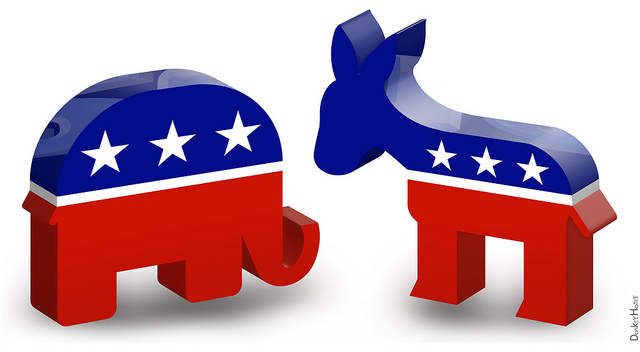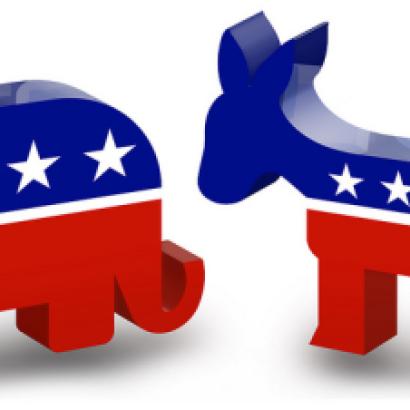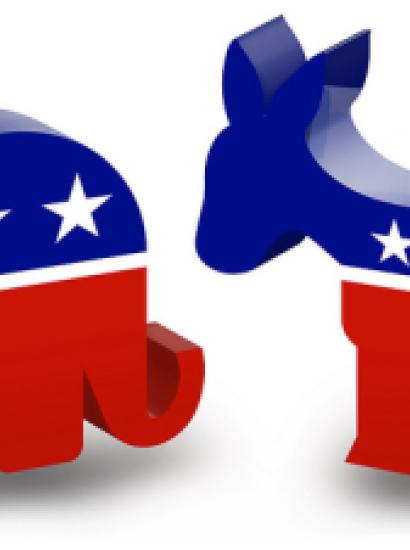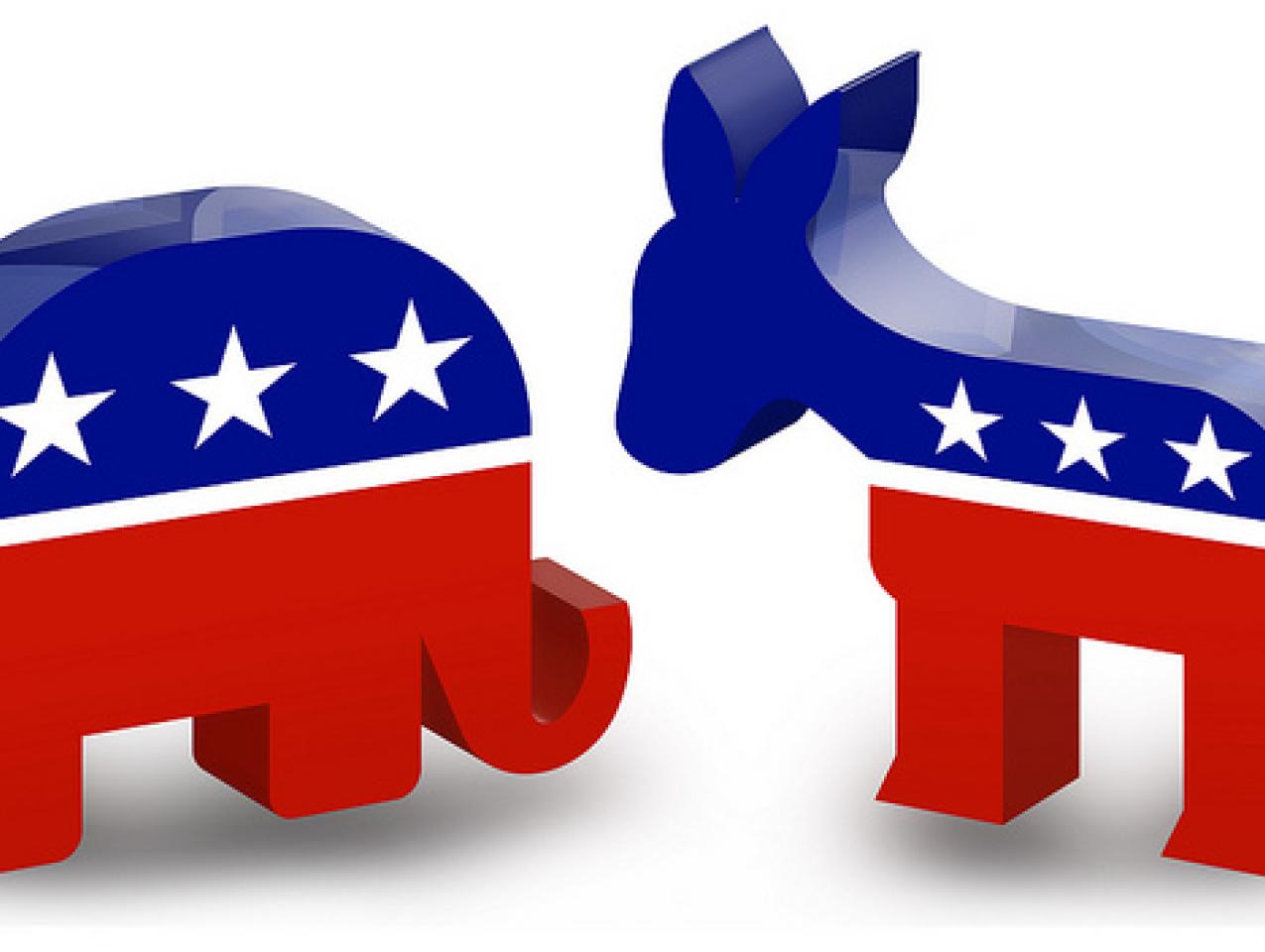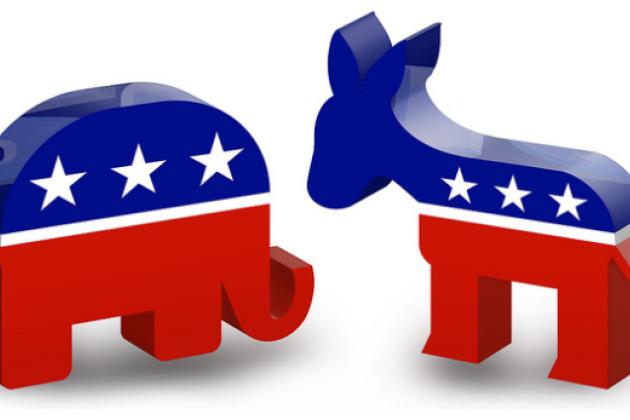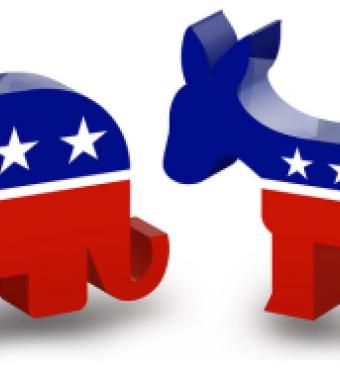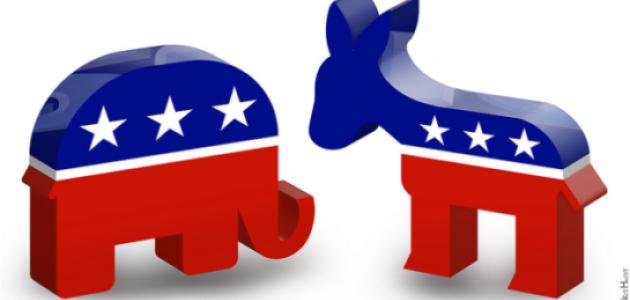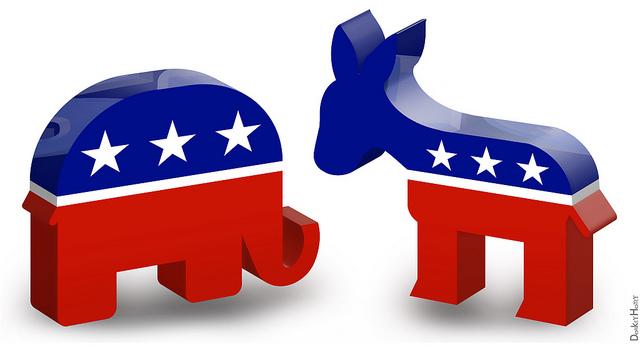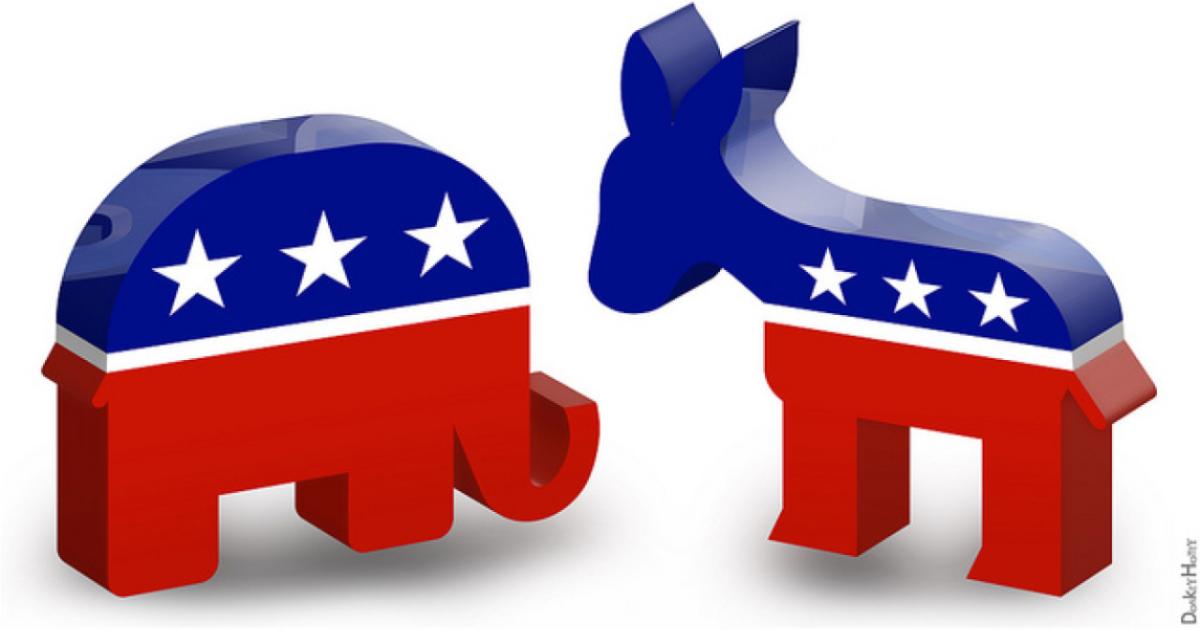- Politics, Institutions, and Public Opinion
The 2016 presidential election has started with a bang. Donald Trump ignited the fireworks when he accused Mexico of sending “rapists” and other criminals to the U.S., and denied that Senator John McCain is a war hero. Senator Ted Cruz on the floor of the Senate said Senate Majority Leader Mitch McConnell had told “a simple lie” regarding legislation renewing the Import-Export Bank. Presidential candidate Mike Huckabee accused President Obama of signing a deal with Iran that would “march [Israelis] to the door of the oven.” And the President equated Republicans who oppose the deal with Iran of making “common cause” with the Iranian “hard-liners chanting ‘Death to America.’”
These and other comments elicited the usual condemnations of the “incivility” that presumably degrades the political process. Presidential candidate Jeb Bush called Trump’s remarks “unfortunate” and advised, “We must have a more civil policy debate in this country.” The President said Huckabee’s comments were “ridiculous” and called for a “sense of seriousness and decorum and honesty.” Senator Orin Hatch scolded Cruz and said “misuse of the Senate floor must not be tolerated,” while Maryland Democratic Representative Steny Hoyer decried Cruz’s “egregious violation of civility.” As for the President’s remarks, New Hampshire Senator Kelly Ayotte called them “beneath that office [of the presidency],” and Karl Rove said the president’s “tone” had “polluted America’s political dialogue.”
Washington Post pundit Dana Milbank attributed this incivility to “the growing polarization of both parties” and to the “obvious reality” that the “Republican Party has gone particularly bonkers.” Milbank’s comments, with their uncivil name-calling and partisan scapegoating of Republicans, remind us that the calls for “civility” and bipartisanship, usually linked to some imagined political golden age of bipartisan comity and cooperation, are often rhetorical tactics for gaining partisan advantage and delegitimizing opposition. They also reflect a belief that the purpose of the federal government is primarily what the organization No Labels, dedicated to restoring civility to government, vaguely calls “the business of solving the problems facing the nation,” a duty compromised by “all the petty infighting, party-first agendas and hyper-partisan wheel-spinning.”
Rather than reflecting some recent decline in political decorum, however, the “incivility” these comments lament is as old as the ideological conflicts that have defined democracy since its origins in ancient Athens. A dislike of political rancor is at heart a dislike of democracy, and a misunderstanding of the Constitutional structure and its purpose.
Starting in ancient Athens, democracy has given the vote and equal participation in policy deliberation to citizens regardless of wealth, status, or knowledge. Given the wide variety of conflicting interests, ideologies, and character among the citizenry, the public deliberation that lies at the heart of democratic policy-making has always been rough, vulgar, and insulting, often at a level far beyond what we today call the “politics of personal destruction.”
In Athens, politicians were publicly insulted and humiliated, on the comic stage or in public speeches delivered in the Assembly, the equivalent of our Congress. As classicist K.J. Dover writes of comedy in the 5th and 4th centuries B.C., just about every Athenian politician we know of was accused of being “ugly, diseased, prostituted perverts, the sons of whores by foreigners who bribed their way into citizenship.” Political debate in the Athenian Assembly was not much better. Sordid sexual practices, disreputable parentage, and taking foreign bribes were standard charges.
Political debate in early America seldom reached Athenian sexual coarseness, but still was brutal, reflecting a similar diversity of interests and religious beliefs existing in the thirteen colonies. Particularly when political parties began to coalesce in the second term of George Washington, political rhetoric was as personal and insulting as the comments we decry today. John Adams, a Federalist suspected of scheming to concentrate power in the federal government, was called “His Rotundity” by his antifederalist rivals, mocking both his alleged aristocratic pretensions and his ample girth. James Madison, calling on the class warfare rhetoric many decry today, accused Adams’ party of being “partial to the opulent,” seeking to rule by “the pageantry of rank [and] the influence of money and emoluments,” and desiring power so that the government is “narrowed into fewer hands, and approximated to an hereditary form.”
The Federalists responded in kind, one editorial writer calling the Democratic-Republican clubs, incubators of Madisonian-Jeffersonian democracy, “that horrible sink of treason, that hateful synagogue of anarchy, that odious conclave of tumult, that hellish school of rebellion.” Indeed, the charge that Thomas Jefferson fathered children by his slave Sally Hemings began as a political smear in the 1800 election.
The tumultuous decades leading up to the Civil War saw an explosion of such invective sparked by the intense conflict over slavery. In 1851 Representative Preston Brooks stormed the Senate floor to cane and seriously injure Charles Sumner, who had characterized anti-abolitionist fellow Senator Stephen Douglas as a “noisome, squat and name-less animal.” Later Abraham Lincoln was called the “missing link” and the “original gorilla.” The New York Times’ Paris correspondent called for an embargo on portraits of Lincoln, for “the person represented in these pictures looks so much like a man condemned to the gallows, that large numbers of them have been imposed on the people here by the shopkeepers as Dumollard, the famous murderer of servant girls, lately guillotined near Lyons.” And the Times was a supporter of Lincoln.
Every decade of American history has been filled with political speech of the sort we now decry. Jingles about Warren G. Harding’s illegitimate daughter, rumors that FDR was scheming to become a dictator, caricatures of “Tricky Dick” Nixon as a used-car salesman, Ronald Reagan mocked as an amiable dunce, Bill Clinton nicknamed “Slick Willy,” George W. Bush slandered as “Bushitler”––American political speech has always used insult and personal attacks in partisan disputes over power and policy.
This fierce verbal combat would not have surprised the Founders. As James Madison wrote in Federalist 10, citizens are motivated not by the rational study of ideas, empirical evidence, and cool debate over the issues, but by “interests and passions,” the former comprising property, the latter religion. Out of these arise the conflicting “factions” and “parties,” each seeking to protect and advance its interests, and all “inflamed . . . with mutual animosity, and rendered . . . much more disposed to vex and oppress each other, than to co-operate for their common good,” as Madison wrote.
Assuming that these phenomena reflected permanent flaws “sown in the nature of man,” the architects of the Constitution sought not to eliminate such factional struggle, but to limit the excessive power of any faction by dividing the federal government into three powers, each checking and balancing the other, and empowering the state governments to counterbalance the federal government. The primary aim was to protect freedom and autonomy by keeping any ambitious factional power from growing strong enough to tyrannize the people. Thus “solving the problems facing the nation” was not as important as protecting political freedom and the sovereignty of the states.
As for the tone and quality of public discourse, if the citizenry comprises multiple factions free to seek their interests and express their passions, one would expect political speech to be spirited, angry, and brutal, for passionately held beliefs in fundamental principles, which seldom can be reconciled with conflicting beliefs and principles, frequently form the substance of political speech. Yet such passionate public expression of partisan conflict and division is a small price to pay for checking the aggrandizement of one faction’s power that a more bipartisan and unified government might seek. After all, bipartisan legislation and Congressmen “reaching across the aisle” created the Leviathan entitlement state on track to bankrupt the government.
But shouldn’t we expect our elected officials to be better than the rough and rude discourse of ordinary citizens and their organs of communication? Madison hoped so, positing that the indirect election of Senators and the President would allow “filtrations” of politicians so that the virtuous and wise would end up in office.
That seemed to be the conclusion of Alexis de Tocqueville, writing in 1835 during the flourishing of Jacksonian democracy. He disagreed that “the people always wish the welfare of the state and instinctively designate those who are animated by the same good will and who are the most fit to wield the supreme authority.” On the contrary, he continues, “I was surprised to find so much distinguished talent among the citizens and so little among the heads of the government. It is a constant fact that at the present day the ablest men in the United States are rarely placed at the head of affairs; and it must be acknowledged that such has been the result in proportion as democracy has exceeded all its former limits.”
Tocqueville was particularly hard on the most democratic federal institution, the House of Representatives, in which “one is struck by the vulgar demeanor of that great assembly. Often there is not a distinguished man in the whole number.” The Senate, at that time still chosen by the state legislatures, was very different, a more distinguished and accomplished body, in Tocqueville’s view. The direct election of Senators established in 1913 by the 17th Amendment brought the Senate to the level of the House, as well as drawing the federal government farther from its republican origins and closer to the direct democracy that the Founders feared.
So we shouldn’t be surprised that the level of discourse in both houses is, with some exceptions, more on a par with that of the citizens. But in the end, that is not as important as maintaining the Constitutional mechanisms for protecting individual freedom from the encroaching power of a hypertrophied federal government. In this context, trying to moderate or police, based on some subjective notions of “civility” or decorum, the clashing expressions of passionate beliefs often is an attempt to limit the freedom to express those beliefs, and a way to benefit one faction at the expense of others.
As Craig Shirley, biographer of Ronald Reagan, said recently, “The last thing we need in American politics is more civility.” Civility is often the camouflage for hiding challenges to the big government faction and concealing the collusion of bipartisan elites that has created the redistributionist entitlement state. After all, the First Amendment does not protect merely decorous or genteel speech, but as the political rhetoric of American history shows, all manner of speech no matter how rude or uncivil. That’s because our political ancestors knew something we should never forget––that as the Athenian Sophocles said, “Free men have free tongues.”







